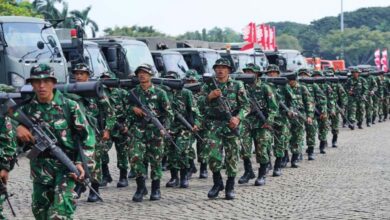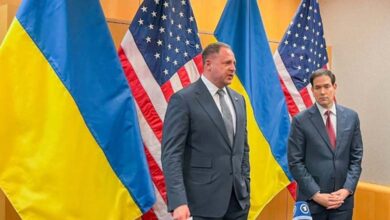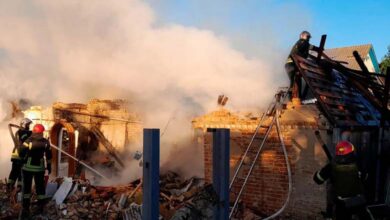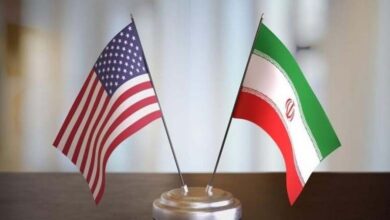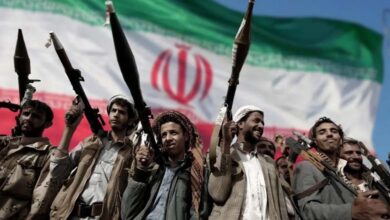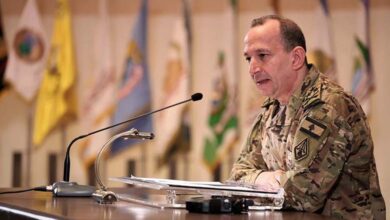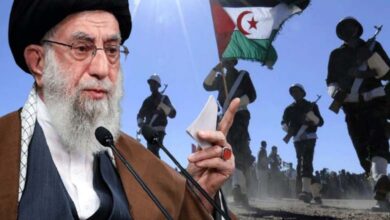The death of Ibrahim Munir; does it mark the end of the Muslim Brotherhood movement?
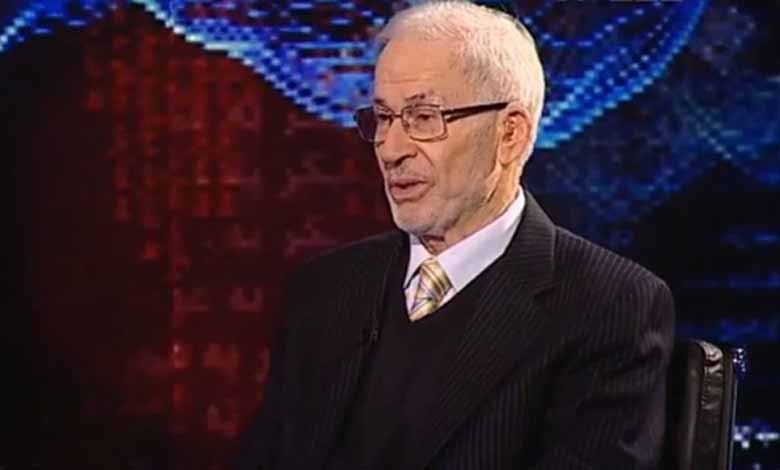
The death of former Brotherhood leader Ibrahim Munir may have marked the collapse of the organization which entered a period of fragmentation which documented the worst chapters of its existence.
Confusion reigns in the organization following the death of what observers see as the removal of all the regulatory justifications taken by the MB when “Munir” was installed as the acting leader of the Brotherhood after the arrest of the deputy of the Guide Mahmoud Ezzat, the acting leader of the Brotherhood years ago.
Munir drew on several provisions of the bylaws, which allowed him to assume the post of acting leader of the Brotherhood. He was selected as the deputy of the Brotherhood’s guide during the era of the supreme leader, Muhammad Mahdi Akef, which gave him the power to compete for the position.
Munir and his front
Munir was chosen as the leader’s deputy in the past, as the group used to nominally choose a number of representatives for the leader first to please the Brotherhood abroad on the one hand and to use those deputies to revive the group’s activity if it was confronted by the authorities in Egypt.
The choice gave Munir strength in his struggle with the anti-Munir front, which may be why his front is weak in its conflict with Mahmoud Hussein’s camp. What was a source of strength in the past will be a source of weakness in the future.
Mahmoud Ezzat and Mohamed Badie, the Brotherhood’s guide, also depended on him before they were arrested for directing the organization’s affairs abroad. He became the group’s number one organizer and leading figure, and was closest to taking over the organization after the death of Juma Amin, the Brotherhood’s deputy guide in London years ago, and the arrest of Mahmoud Ezzat by Egyptian security authorities.
Munir’s death will weaken his front, especially as it considers itself the group’s main representative. The other front headed by Mahmoud Hussein and Mustafa Tolba is considered to have exempted itself from the organization completely.
More division
It is expected that the death of “Munir” will lead to further division in his front, so that the conflict will not be between only three fronts, namely Ibrahim Munir’s front, Mahmoud Hussein’s front, and the third front, known as the General Office, but will cause a division within Ibrahim Munir’s own front. This is where the division will be divided and fragmented within the organization.
The death of Munir will be a turning point in the struggle within the organization between the divided fronts, and it will be in the interest of Mahmoud Hussein’s front, especially since Munir left only a weak figure to succeed him who may not be able to continue the conflict.
One of the personal traits of Ibrahim Munir was that he was a cunning, witty, and charismatic figure, which his successors may miss, and this is where these caliphs will be the weakest link in the conflict, which may determine him in favor of Mahmoud Hussein on one side and divide Ibrahim Munir’s front on the other.
The terrorist Muslim Brotherhood is suffering from structural collapses following the death of its top leader. This death will further divide the organization, not only within Ibrahim Munir’s front, but also within the anti-Brotherhood front, known as the Mahmoud Hussein Front, which is also looking for any goal it achieves through its opponent’s goal.
It is expected that Mahmoud Hussein’s front will issue an obituary statement confirming the resolution of the conflict in its favor before announcing the death of the man whom it had previously released from the group. This may provoke a state of tension within the conflicting fronts, as he will be understood to have recovered in the man.
Another scenario is that Mahmoud Hussein’s front ignores the news of the death of Ibrahim Munir, which is a low probability. The statement of mourning may be issued on the same day of death or two or several days later, which the opposing front will consider an abuse against Ibrahim Munir’s front, and a violation of the activist’s history, his early membership in the group, and his giving in favor of the organization.
In any case, the battle between the two fronts will begin, whether with the obituaries of Mahmoud Hussein’s front, or with the man’s obituaries being ignored and his funeral not being attended. The real conflict between the two fronts will resurface even more after the death of Munir, which may be the testimony of the group’s collapse.
For Hussein!
“There is an expectation that Mahmoud Hussein will resolve the conflict in his favor after an unlimited number of members of the group who were in the middle of the conflict join him, when they see that the balance will tilt in his favor.”
The same will happen for some countries that support political Islamist organizations in general and the Muslim Brotherhood in particular. They provide support to the Mahmoud Hussein Front, and they believe that this support for the Mahmoud Hussein Front will lift the organization out of the labyrinth of division it struck more than two years ago.
All indications are that Muhyi Al-Din Al-Zayt, the deputy of Ibrahim Munir, will assume the organization’s powers immediately after his death. Thus, all of Munir’s powers will devolve to him.
The Egyptian Mohieddine Al-Zayt was a member of the Brotherhood’s Shura Council, while Mahmoud Hussein was a member of the Guidance Bureau and the organization’s secretary-general. The latter was thus above organizational level, and Al-Zayt would not be able to hold a lot of silence against Mahmoud Hussein’s front, and this might be in Hussein’s favor.
Mahmoud Hussein represents the deep state within the organization, and therefore appears to have treated the Egyptian proverb, “Be patient with your enemy until death brings him back”, in which he decreased his tone of criticism and even shied away from his criticism in the recent period when his opponent’s health conditions came to an end.
The death of Ibrahim Munir triggered a flare-up among the IAF-aligned Brothers of Egypt, who echo that Munir’s death is an end to conflict and division and the beginning of a new chapter for the organization, led by Mahmoud Hussein’s Muslim Brotherhood, as was the case in the past.
An opportunity for dissidents
The Mahmoud Hussein Front will soon announce “Hussein” as acting leader in place of Mustafa Tolba, especially since conditions are now favorable for him.
The sources also learned that the low tone of the Mahmoud Hussein Front in criticizing the anti-Hussein Front carried the scenario of declaring “Hussein” acting leader of the Brotherhood.
Private sources within the organization said that Mahmoud Hussein’s front will give an opportunity to everyone who took sides with Ibrahim Munir’s front, to disown his former affiliation, to declare his remorse for it, and to return to the embrace of the “new” organization, so that Hussein can dismantle what remains of Munir’s collapsed front.
A meeting of the Supreme Administrative Committee of the Brotherhood is underway before Ibrahim Munir is buried. The committee was formed to replace the Guidance Office, which consists of 13 members of the Shura Council to sort out the situation and a number of the group’s files.
Collapse certificate!
Dr. Hisham al-Najjar, a prominent expert on political Islamist movements, said he believes the Muslim Brotherhood will be adversely affected by the death of Munir.
He said Mahmoud Hussein’s Front and the Kamalis (Third Movement) will not give up on a front through which they invest politically through their sharp positions, violence and incitement.
Al-Najjar said Munir’s death may have been an apparent win for other rival factions (the Mahmoud Hussein and al-Kamaliyin Front), but in reality the group as a whole is losing because of Ibrahim Munir’s organizational weight and importance in the context of the activities of the Brotherhood’s international organization.
Munir’s ties to Western figures and agencies were beneficial to the group’s overall existence and gave it the ability to survive regardless of the differences within the group, he said.
“Contrary to the overt image of differences and conflicts among the Brotherhood’s leadership, influence, wealth and funding fronts, there is an exchange of roles and a convergence of interests among the three fronts,” he said.
“The Ibrahim Munir Front benefits from the Brotherhood in Turkey, and even from the Kemalist [Muslim Brotherhood] because it needs pressure tools that promote a sharp tone and direct inflammatory rhetoric, which allows the London Front to promote itself as moderate and accept concessions, which opens the door for its generalization and re-engagement in the scene,” he said.
Other fronts also benefit from their need for the character of Ibrahim Munir to capitalize on their inflammatory pressure in the form of evasive political formulas, he said.
The political expert concluded that with Munir’s death, the group with all its wings is losing and will be negatively affected even by Mahmoud Hussein’s Front and the Kamalis; Because they will not give up a front to invest politically through their sharp positions, their violence and their incitement.


